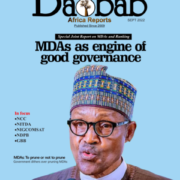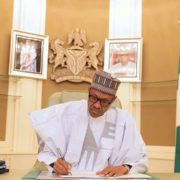By Austin Kwesi Okere
On June 4, 2025, Bloomberg.com drew global attention with the headline: “World-Beating Cedi Slows Ghana Inflation to Three-Year Low.” Defying expectations, the cedi has appreciated over 42% against the U.S. dollar since January, making it the world’s best-performing currency this year. This rally has not only boosted investor confidence but also helped reduce inflation and restore economic momentum.
What’s Driving the Rally and Can It Be Sustained?
Early signs suggest the rally is rooted in more than market forces. Under President John Dramani Mahama, Ghana appears to be undergoing a significant shift in governance, with an emphasis on real economic growth and social development rather than short-term optics.
At the heart of this shift is Mahama’s eight-pillar economic strategy, which includes:
- Completing the IMF program with fiscal discipline,
- Reopening capital markets,
- Strengthening sovereign wealth and local government financing,
- Clearing arrears and improving public investment,
- Reforming public financial management,
- Boosting exports via the Ghana Exim Bank,
- Positioning Ghana as a regional trade hub, and
- Reviving infrastructure development.
These efforts are beginning to pay off. Ghana has indicated it will exit the IMF program as scheduled in May 2026. At a press briefing in Washington, IMF Communications Director Julie Kozack noted that Ghana had achieved its debt-to-GDP target of 55% three years early and surpassed its international reserves goal, reaching GH¢10.6 billion by April 2025. The cedi’s strength has also helped slash Ghana’s debt stock by about GH¢150 billion.
President Mahama, speaking to the Ghana National Association of Teachers, reaffirmed his focus on stability and inclusive prosperity. GDP growth reached 5.4% in the first quarter, reinforcing the view that the economy is back on a growth path.


Ernest Addison, Governor of the Bank of Ghana. Courtesy: Financial Times
Monetary Policy and Inflation Management
The Bank of Ghana has played a key role in managing inflation and currency stability. In March, it raised the benchmark interest rate by 100 basis points to 28%, a reduction from its 30% peak in 2023. From January to April 2025, it absorbed GH¢79.8 billion in liquidity – up 76.6% from the same period the previous year, demonstrating its commitment to macroeconomic stability.
These measures have had visible results: inflation fell to 18.4% in May, its lowest level in three years, down from 21.2% in April.
Everyday Impact: The Cedi’s Gains in Real Terms
The appreciation of the cedi is beginning to improve everyday life for Ghanaians. Industrial importers, for instance, are now able to buy machinery at significantly lower prices. One contractor, who paid GHS25,000 for a block molding machine last year, paid just GHS13,000 for the same model in June—a 48% price drop.
Fuel prices have dropped by about 15%, with some Oil Marketing Companies (OMCs) selling petrol for under GH¢12 per litre. This has led to a 15% reduction in transport fares, as announced by the Road Transport Operators Association in May.
Food and commodity prices are also falling. The Food and Beverage Association of Ghana reports that the price of a bag of “Dubai” rice has dropped from GH¢460 to GH¢370, and a 50kg bag of imported rice that once sold for GH¢950 is now GH¢750. Cooking oil has fallen from GH¢1,000 to GH¢680 per gallon, and cement prices from GH¢120 to GH¢82 per bag.
In short, the stronger cedi is improving purchasing power, easing cost pressures, and lowering the cost of doing business.


Ghanaian Currency, Cedi. Courtesy: Financial Times
What’s the Ideal Currency Level?
Despite the positive momentum, policymakers stress the need for balance. President John Dramani Mahama has underscored the importance of balance, cautioning that an overly strong cedi could harm exports. He suggests an optimal exchange rate range of 10 to 12 cedis per U.S. dollar – a level that supports both importers and exporters while preserving competitiveness
Beyond interest rate adjustments, the sustained performance of the currency depends on broader structural and governance-related factors.
Three critical elements driving the cedi’s performance include:
- A government focused on real, inclusive growth;
- Reforms grounded in substance, not optics;
- Trustworthy, transparent governance.
This combination fosters domestic investment, reduces capital flight, and boosts economic confidence, setting off a cycle of growth and social cohesion.


Ghana’s Gold-for-Oil gamble. Source: MyJoyOnline
Is the Cedi’s Rise a Temporary Spike or a Structural Shift?
Some analysts argue that Ghana’s currency rally reflects deeper structural improvements rather than a short-lived spike. Prof. Eric Oteng-Abayie of the Kwame Nkrumah University of Science and Technology points to several domestic drivers behind the rally.
The Bank of Ghana’s Gold4Oil and GoldBod programs have increased Ghana’s gold reserves by 40.6% between May 2024 and April 2025. A requirement that 20% of gold export proceeds be converted to cedis before accessing dollars has stabilized forex supply and bolstered reserves.
Meanwhile, the removal of distortionary taxes such as the E-levy and the planned phase-out of the COVID-19 levy, combined with prudent public spending, have strengthened fiscal credibility.
Ghana’s debt restructuring has also offered relief. With the next major external repayment not due until July 2025, foreign exchange pressure has eased. Complementing this, the central bank injected $490 million into the forex market in April 2025 to support the cedi.


COCOBOD assures better bean supply. Source: CitiNewsroom.com
External Factors Working in Ghana’s Favor
Global trends have also benefited Ghana. The U.S. dollar has weakened—dropping 10% on the DXY index—amid global trade tensions and fears of a slowdown. This shift has favored emerging market currencies like the cedi.
Record-high prices for Ghana’s key exports – gold at $3,400 per ounce and cocoa at $10,000 per ton – have significantly boosted foreign exchange inflows. The formalization of small-scale mining has further increased legal gold exports, strengthening Ghana’s external position.


Fitch upgrades Ghana’s credit rating to B- Source: Fitch Ratings
Relations with Commercial Creditors Normalised:
Fitch Ratings has upgraded Ghana’s Long-Term Foreign-Currency Issuer Default Rating (IDR) to ‘B-‘ from ‘Restricted Default’ (RD), with Stable Outlook.
This was announced on their website on June 16, 2025. The upgrade of Ghana’s Long-Term Foreign-Currency IDR to ‘B-‘ from ‘RD’ reflects Fitch’s assessment that Ghana has normalised relations with a significant majority of external commercial creditors. Ghana restructured its USD13.1 billon Eurobonds in October 2024. About USD2.6 billion of non-performing external debt still needs to be restructured. Of this, Fitch considers USD700 million to be commercial debt, representing 5% of total external commercial debt initially included in the restructuring perimeter. According to Fitch, “Ghana is negotiating with these outstanding commercial creditors, and we assess holdout risks as small.”
Can Ghana Sustain the Momentum?
While the outlook appears promising, the sustainability of this recovery will depend on disciplined policymaking, focused execution and the ability to maintain public trust. The early signs are encouraging, but in my view, “the jury is still out.”
Ghana’s case may well become a model for how transparent governance, strategic reforms, and global tailwinds can come together to drive economic revival – if the momentum can be maintained.


Austin Kwesi Okere is the Founder of CWG Plc and the Ausso Leadership Academy. A respected thought leader and business mentor. In recognition of his contributions to business education and knowledge transfer across the continent, Austin was appointed to the Advisory Board of the Global Business School Network.





















